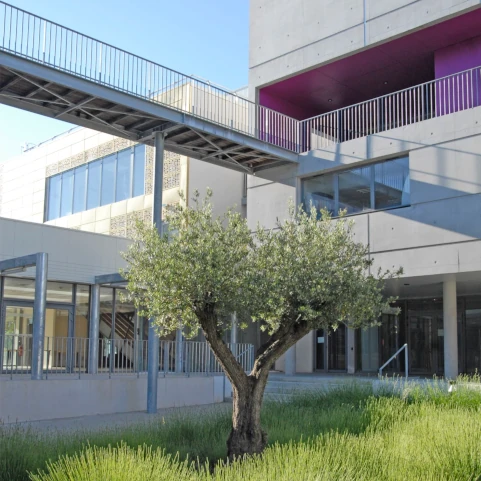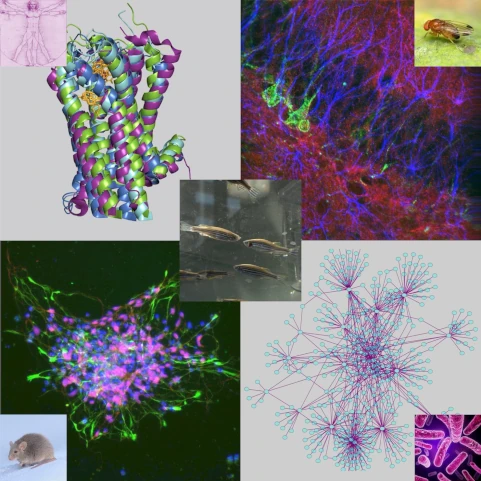Presentation

The Institute of Functional Genomics (IGF, UMR 5203, U1191) is a multidisciplinary Joint Research Unit with the University of Montpellier, CNRS and INSERM as supervisory bodies.
Founded in 2005 by Professor Joël Bockaert, and headed by Dr Jean-Philippe Pin from 2011 to 2020, then by Dr Philippe Marin from 1 January 2021, the IGF is home to around 350 people – researchers, teacher-researchers, engineers, technicians, post-docs and students – working in 22 research teams and two scientific departments:
• The Neurosciences Department
• The Physiology and Cancer Department
The unit also includes 8 technological platforms of the Biocampus Research Support Unit and support services.
Located at the heart of the Arnaud de Villeneuve university hospital campus, in the immediate vicinity of the new Faculty of Medicine and Montpellier hospitals, the IGF offers a privileged scientific environment. Open to the outside world, the IGF is a partner in a number of national and international research networks (Europe, North America, China, etc.), is developing fruitful interactions with a number of socio-economic partners and is encouraging the exploitation of discoveries and the creation of companies.

/ Scientific project
Research at the IGF focuses on the functional genomics of physiological and pathological cellular communications in the fields of neurobiology, endocrinology, oncology and cardiology.
This project is based on a multi-scale strategy ‘from molecule to system’ combining structural, biochemical, genetic, epigenetic, omics, physiological and behavioural studies. A major effort is being made to develop single-cell studies across multiple dimensions and multi-omics approaches, which are needed to tackle the complexity of living organisms.
It also relies increasingly on translational research, encouraged by the proximity of hospitals and the recruitment of teams of clinicians from different fields (neurovascular, diabetology, neuro-oncology and psychiatry). The aim is to identify new mechanisms and concepts in the field of cellular communications, to enable the development of new therapeutic strategies and diagnostic tools.

/ Supervisory bodies



/ Main funders




















